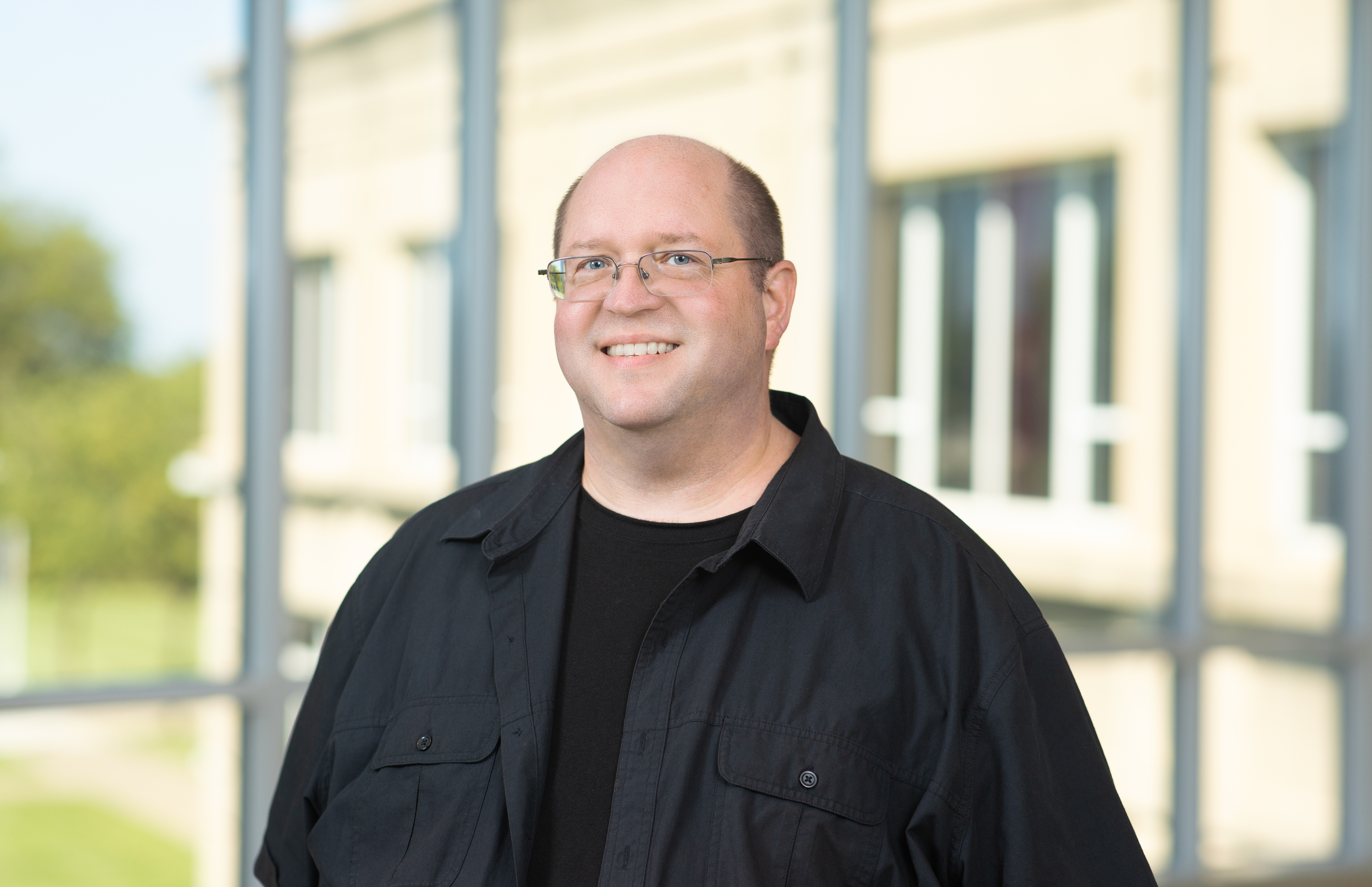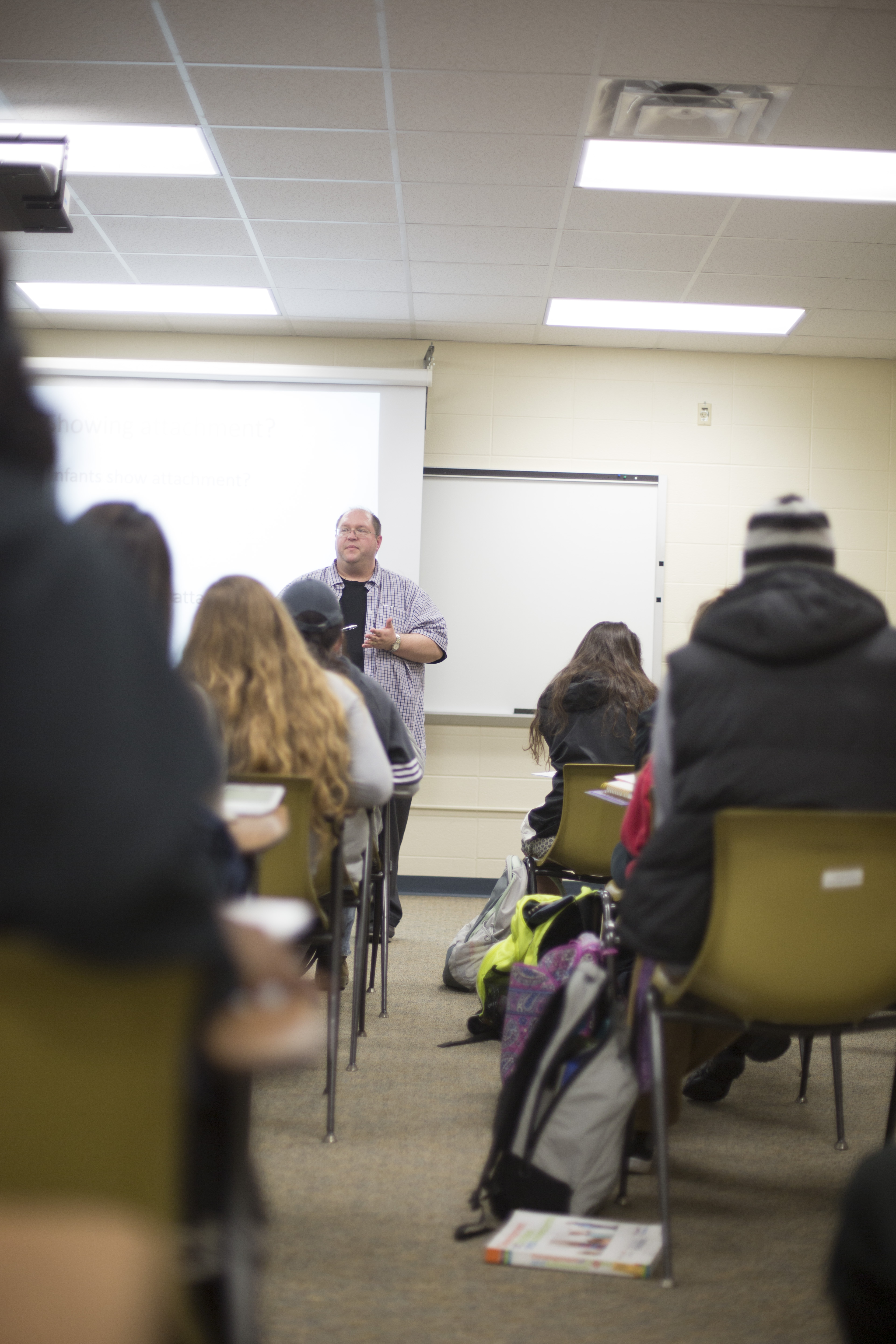The college years can be challenging for young adults, many of whom are tasked with a range of new responsibilities — from managing their time and implementing effective study habits to living on their own for the first time.
Self-Esteem and Belonging in the College Classroom: A Conversation With Dr. Shawn Guiling
Continue to main contentThe college years can be challenging for young adults, many of whom are tasked with a range of new responsibilities — from managing their time and implementing effective study habits to living on their own for the first time. But today’s students aren’t just dealing with the typical challenges that come with the transition from high school to college or changing careers, many of them are also experiencing mental health challenges.
Two in five undergraduate students say their mental health is impacting their learning and academic performance, according to data from a 2024 Inside Higher Ed survey. Of the 5,025 students surveyed, one in ten rate their mental health as poor. The main factors driving this response include difficulties balancing personal responsibilities with schoolwork, academic stress, social media prevalence and increased loneliness.
 Dr. Shawn Guiling, assistant professor of psychology at Southeast Missouri State University (SEMO), has observed signs of mental health issues in students in his classroom — both in person and online — particularly negative self-talk that can limit the students’ potential.
Dr. Shawn Guiling, assistant professor of psychology at Southeast Missouri State University (SEMO), has observed signs of mental health issues in students in his classroom — both in person and online — particularly negative self-talk that can limit the students’ potential.
“Many students have this sense that their mental health is poor, and they have many reasons why they believe they can’t do things,” he says. “They’re so quick to say it’s time to just stop trying.” Concerned about the link between self-doubt and academic performance, Guiling has developed some strategies to boost students’ self-esteem and resilience in the classroom.
The Importance of Feeling Heard in the Classroom
When a college student begins a new course, they’re likely to feel intimidated by the instructor and their peers in the physical or virtual space, a fact Guiling believes instructors sometimes forget. “College students are taking on a lot of adult responsibilities now,” he says. “But a lot of them are really still developing and finding themselves, and they’re also intimidated by each other. And that’s why they don’t want to talk in class.”
To help foster the affirming interactions that build self-esteem in the classroom, Guiling divides students into groups for collaborative discussions of course material. “Putting students in small groups helps break down their inability to believe they can answer a question aloud,” he says.
These groups give students the opportunity to share their thoughts out loud with just a few of their peers at first and gradually build their self-esteem as they listen to and acknowledge one another. “I’ll start with eight or nine groups of three or four. And once you get that ball rolling, you can eventually incorporate everybody into class discussion, even those who never believed they could share,” Guiling says.
When students trust that their peers and instructor actually care what they have to say in class discussions, they’re more likely to stay engaged with the course itself, which is why students’ self-esteem is an important factor in student retention.
“If you feel like somebody is not valuing what you’re saying, then you may begin to wonder, ‘Why do I need to be present at all?’” Guiling says. “But if you feel your voice is important in the mix of voices, then you see a place for yourself.”
The Instructor’s Impact on Students’ Self-Esteem and Belonging
Feeling seen and heard in the classroom isn’t just a matter of students feeling confident enough to voice their perspectives. It’s also about the quality of their connection with the instructor. If students feel their instructor is inaccessible or disinterested in hearing students’ perspectives, then there’s little incentive for them to stay engaged with the course.
For Guiling, who has taught psychology courses at SEMO since 2008, demonstrating care as an instructor is central to building students’ self-esteem. “I’m not this impenetrable wall. I’m somebody who’s here working with you,” he says.
Seeking an intentional approach to connecting with each student, Guiling developed the Check In, Check Up, Check Out system. Through three individual meetings with each student, the system ensures there are consistent instructor-student interactions throughout the semester in which the instructor employs active listening and affirming speech to provide the student with a safe space to share their thoughts and request any needed support. 
Three Steps to Building Students’ Self-Esteem
- Check In: Guiling schedules a five-minute, face-to-face interview with each student to discuss their goals for the semester.
- Check Up: Guiling sets up a brief meeting with each student during the semester to ask how they’re feeling and if they need additional support.
- Check Out: Guiling schedules a final meeting with each student in which they can reflect on the past semester and set actionable goals for the next semester to build on what they’ve learned.
As to the feedback from students who have participated in the Check In, Check Up, Check Out system, there’s an encouraging pattern. “A lot of those messages I receive from students say, ‘Thank you so much, I didn’t feel like I ever belonged before this, and I didn’t feel like anybody really needed or cared to hear from me,’” he says.
These instructor-student interactions, paired with the peer groups, provide students with the outlets they need to find their voice, express their concerns and feel like a valuable member of the classroom community.
Self-Esteem and Resilience for Online Students
Guiling teaches both on-campus and online courses at SEMO. His strategies to boost students’ self-esteem and resilience are effective in both learning environments, but students who learn online face additional challenges that may impact their self-esteem, belonging and resilience.
“A lot of them seem so isolated,” Guiling says. “In the individual discussions I’ve had, I get the sense there are plenty of online students who don’t have the opportunity to interact with other students very often. They tell me they’re just so excited I shot a video of me lecturing the chapter, because that was the interaction they had for that day or week.”
For online students whose social skills are underdeveloped, the one-on-one meetings provide the space for them to communicate their concerns and receive the support and encouragement they need to stay on track with their academic goals. “Twice this semester, students have told me they can’t come to class because they have social anxiety. One of those students quit class this semester,” Guiling says. “But she did sit with me and we talked through it. Now she has a plan, and she’s going to try again next semester.”
Measuring Increases in Students’ Self-Esteem in the Classroom
Assisted by his SEMO colleagues Vera Campbell-Jones and Chasity L. Ratliff-Pierce, Guiling is now working to measure the effects of the Check In, Check Up, Check Out system on students’ self-esteem and resilience. In a focused study of psychology and nursing students at SEMO, the team conducted pre- and post-semester surveys, using measures that included the Rosenberg Self-Esteem Scale (RSES), to gauge the effectiveness of interview check-ins that involved brief affirmations and opportunities for students to voice their concerns.
The study revealed a notable rise in self-esteem (from 4.48 to 5.19) as indicated by students’ responses. This highlights a clear link between supportive instructor-student interactions and enhanced self-esteem in students. Guiling continues to explore the larger implications of these results while also observing the effects of demonstrating care on students’ resilience and engagement.
Full-Circle Moments: Supporting Students’ Success
Being there to listen to and reassure his students is second nature to Dr. Shawn Guiling, who has found himself in supportive roles since childhood. “I’ve always been the person everybody who needed to be heard gravitated toward,” he says. “So that was the gift I could give them.”
He continues to share this gift with students in SEMO’s psychology programs. After earning his doctorate in school psychology and launching his ongoing career as a private practice clinical psychologist, Guiling discovered his passion for teaching and helping students succeed. He’s always excited to see their careers take shape. “I have a student who’s at Spalding now, and she went into the PsyD program straight from our program,” he says.
“She recently sent me a research study to share with my students to collect data, and it was like this full circle sort of moment, where she’s doing the same thing that I was doing years ago. And now she’s reaching back to her alma mater to complete her research, and she’s very proud of that research.”

Online Psychology Programs, With Support You Can Count On
Whether you’re ready to earn your bachelor’s degree or seeking advancement with a master’s degree, there’s a path for you at SEMO Online. Our commitment to student support means you’ll receive one-on-one guidance from dedicated faculty, program coordinators and academic advisors. Explore our online psychology programs and realize your full potential.
Sources
Inside Higher Ed, “Survey: Getting a Grip on the Student Mental Health Crisis”
Midwestern Psychological Association, Program, Ninety-Sixth Annual Meeting, Campbell-Jones, V., Guiling, S., and Ratliff-Pierce, Chastity: Mediating Student Self-Esteem and Engagement With Instructor Check-Ins